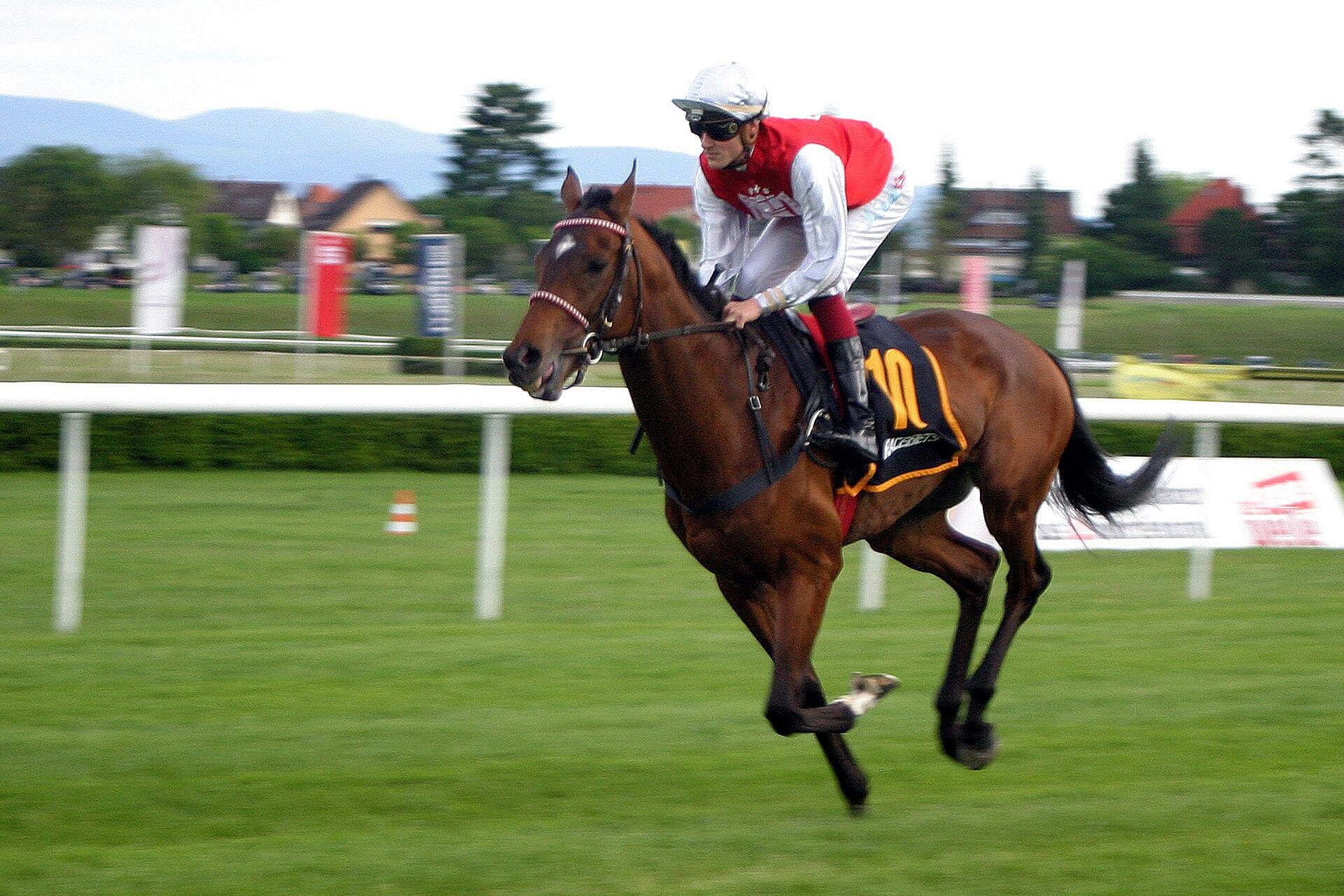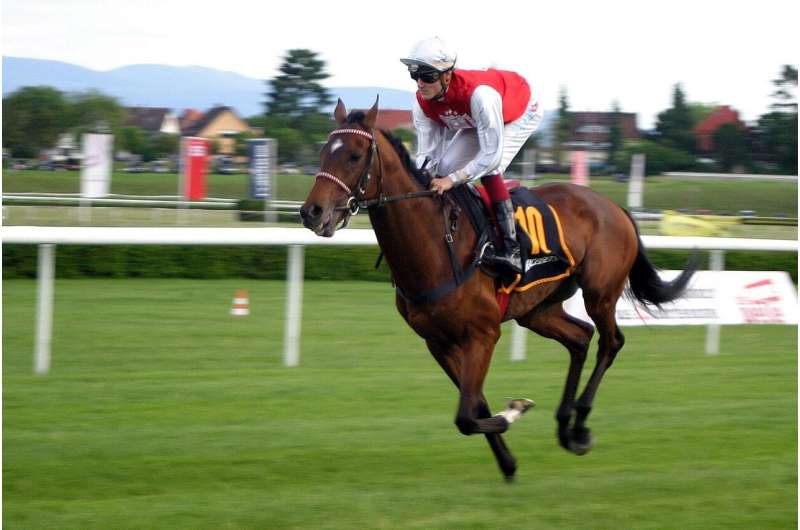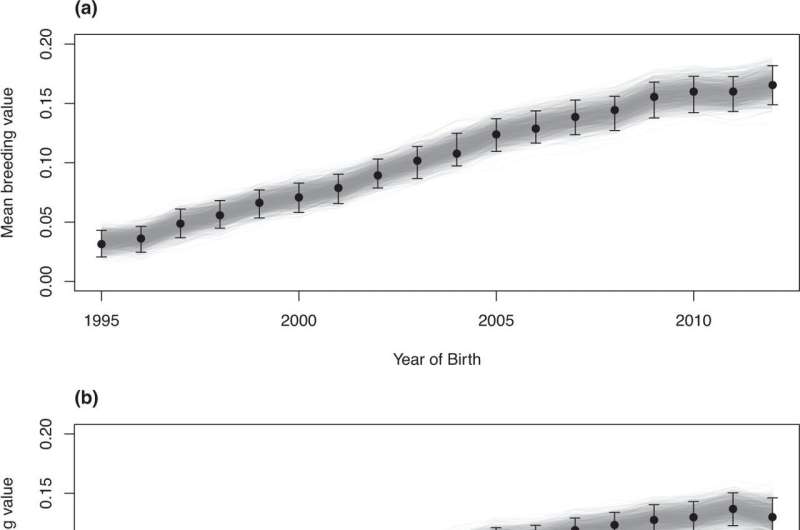

A new study by experts from the University of Exeter has found that genetic improvement is underlying the increasing speed of Britain’s thoroughbreds. This contrasts with earlier studies that suggested racehorses were showing no genetic improvement in response to selection by breeders.
However, the new study has also revealed that rates of genetic progress are relatively low, particularly over long-distance races. Further research is required to determine what is preventing more rapid improvement.
The researchers, whose findings are published in the journal Heredity, analyzed a data set of 692,534 race times run by more than 76,000 horses born between 1995 and 2012. Over sprint, middle-distance and long-distance races, genetic improvement for thoroughbred speed was found to be ongoing and statistically significant.
The study found that genetic improvement accounts for 60%, 55% and 17% of the total increase in speed observed over short, middle and long distances respectively.

The research also showed that thoroughbred speed is only weakly heritable across all distances—in part explaining the slow rates of genetic improvement.
The researchers suggest the low rates of genetic improvement also raise the possibility that selection of racehorses for breeding may be weaker than previously assumed, particularly over long distances, or that some other constraint may be at play.
Dr. Patrick Sharman, from the Centre for Ecology and Conservation at the University of Exeter’s Penryn Campus in Cornwall, said, “There has been plenty of debate over the recent decades whether racehorses have reached a genetic limit to how fast they can run. Our analysis suggests that is not the case, and on the contrary, provides strong statistical evidence that racehorses continue to evolve to run faster in Great Britain. The question now is why are rates relatively low, particularly over long-distances?
“We estimated relatively low heritability for racehorse speed, which goes some way to explaining it, but it would appear there is more to it. The selection of racehorses for breeding may be less accurate and weaker than generally assumed, particularly over long-distance races, but other factors could be constraining genetic improvement.”
More information:
Patrick Sharman et al, Genetic improvement of speed across distance categories in thoroughbred racehorses in Great Britain, Heredity (2023). DOI: 10.1038/s41437-023-00623-8
Provided by
University of Exeter
Citation:
Evolution driving improvements in racehorse speed, study shows (2023, May 30)
retrieved 30 May 2023
from https://phys.org/news/2023-05-evolution-racehorse.html
This document is subject to copyright. Apart from any fair dealing for the purpose of private study or research, no
part may be reproduced without the written permission. The content is provided for information purposes only.